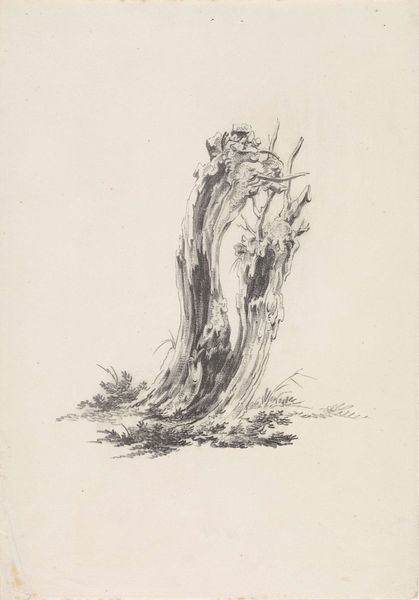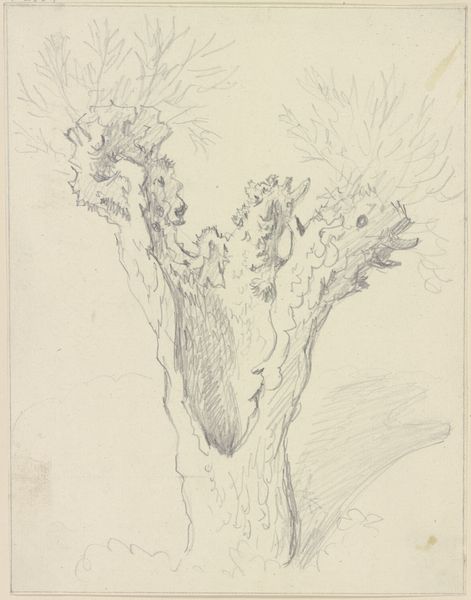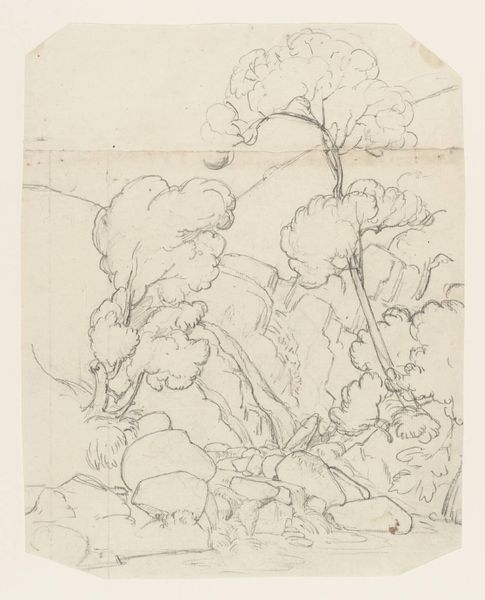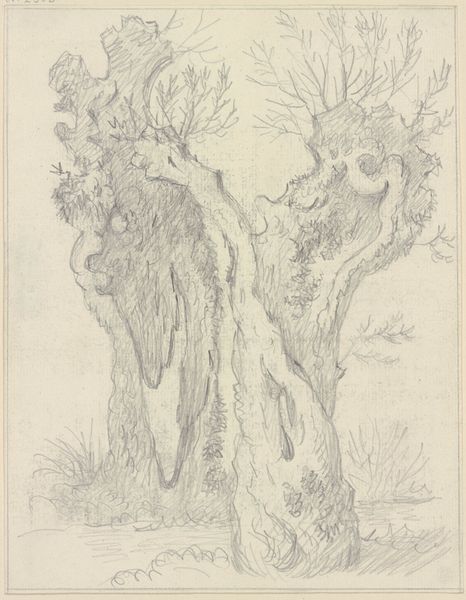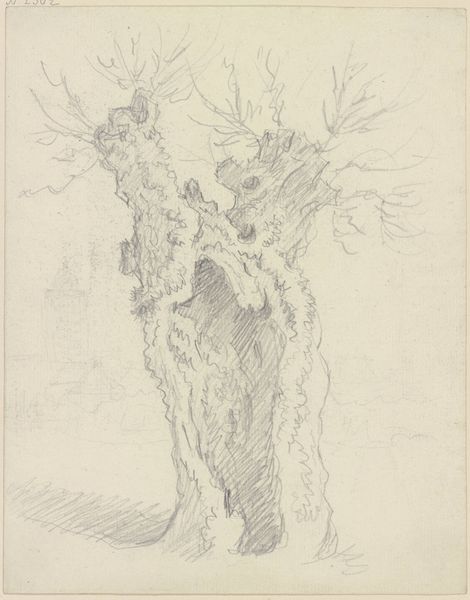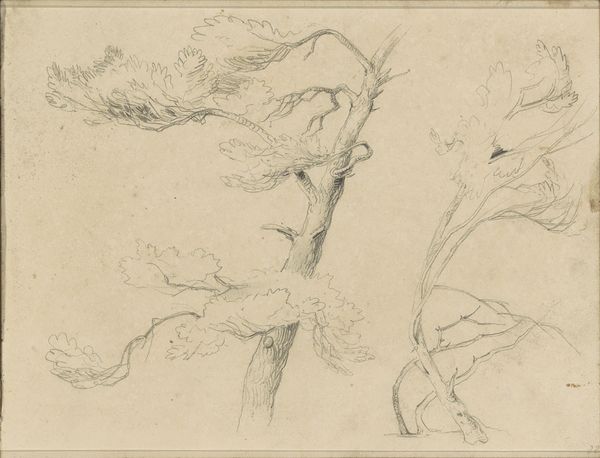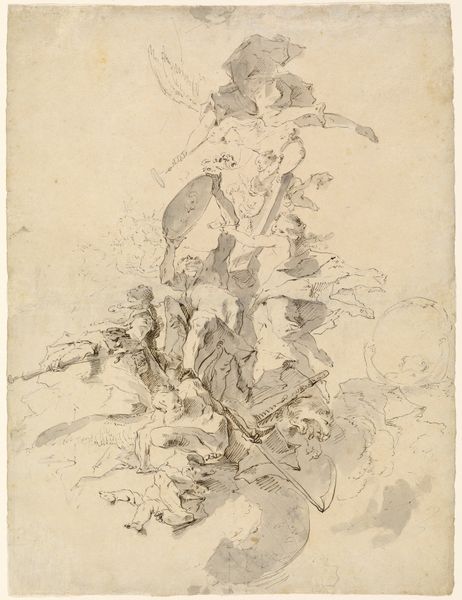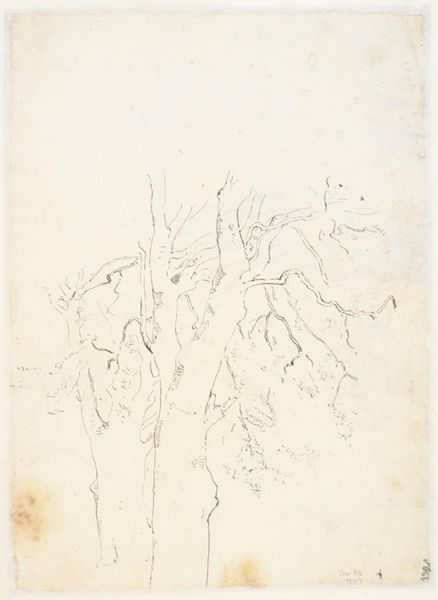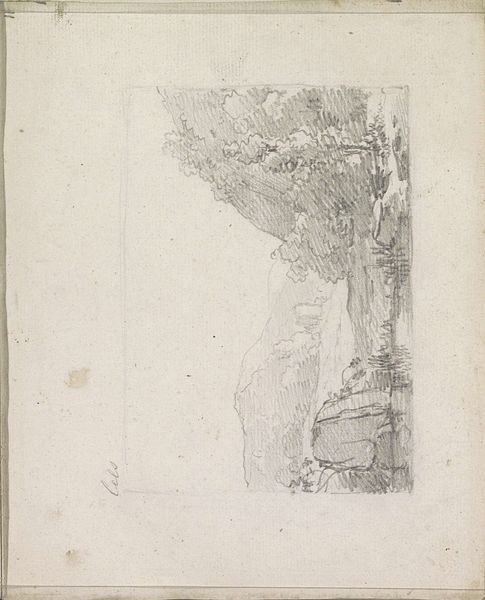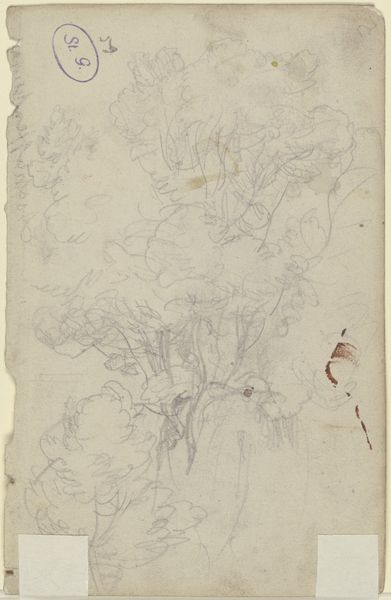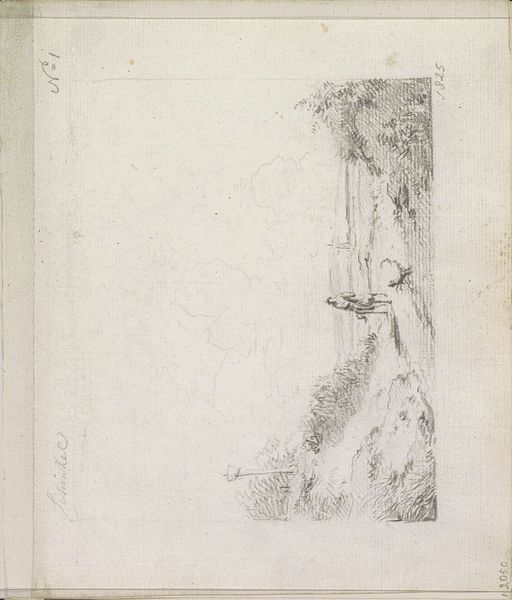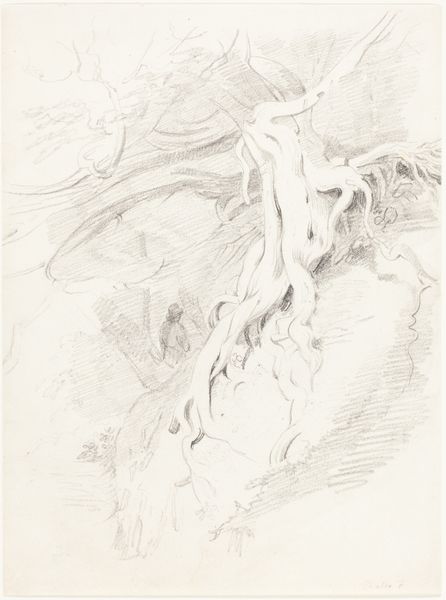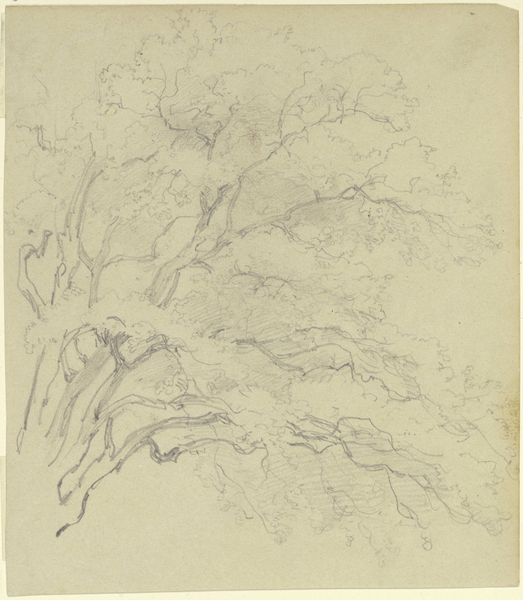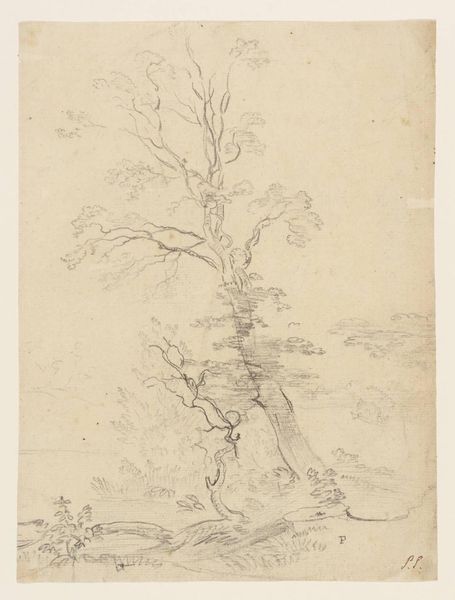
Dimensions: support: 189 x 133 mm
Copyright: CC-BY-NC-ND 4.0 DEED, Photo: Tate
Editor: Richard Wilson’s "Tree Study," a pencil drawing, feels so immediate, like a fleeting impression. What do you see in the context of eighteenth-century art? Curator: The immediacy you mention is key. Wilson, working in a period of grand landscape painting, is here capturing something more personal. How does this raw, unidealized depiction challenge the conventions of landscape as a symbol of power and order? Editor: It feels like a turn inward, almost. Curator: Precisely. Consider the social climate: the rise of Romanticism, with its emphasis on individual experience. Wilson’s tree becomes less about ownership and more about personal connection to nature. I wonder, does this shift resonate with contemporary concerns about the environment? Editor: Definitely something to consider. Thanks for the insight! Curator: My pleasure. It is a pleasure to think through this with you.
Comments
Join the conversation
Join millions of artists and users on Artera today and experience the ultimate creative platform.
tate 10 months ago
⋮
This drawing is part of a set of tree studies by Wilson in the Oppé Collection. Black chalk was a medium favoured by Wilson. Here the textured surface of the laid paper has been heightened by the chalk. He has used light pressure to depict the undulations of the trunk, whilst tone has been suggested by the application of darker vertical strokes in the centre of the trunk. In contrast to other drawings by Wilson exhibited here, he has used the chalk like a pencil, primarily to draw lines, rather than smudging the chalk to suggest tones. Gallery label, August 2004
